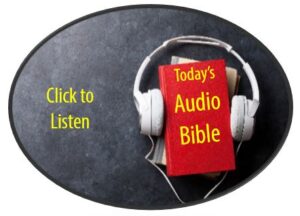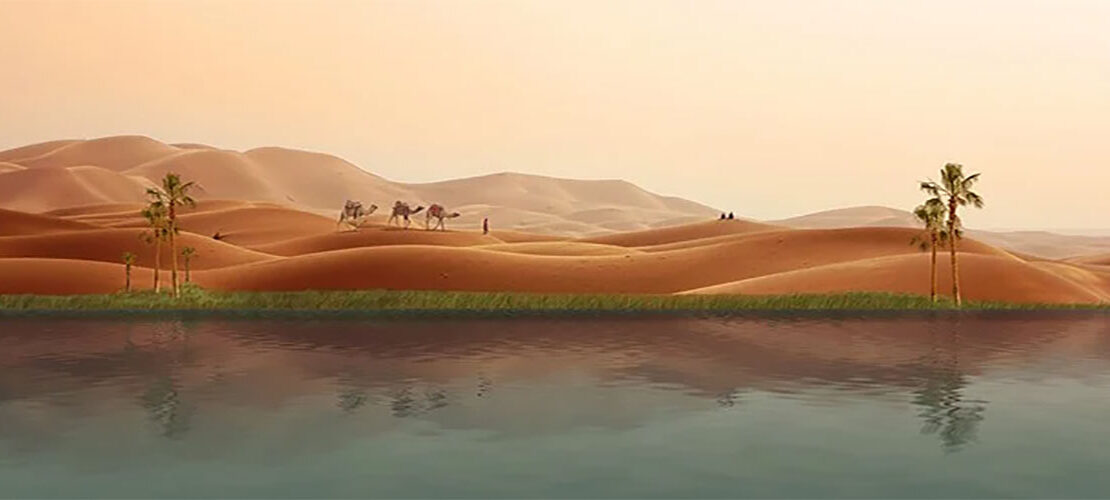
Hello my “Walking with Jesus” friends,
Weddings are wonderful things in every society of the world! Sadly COVID has profoundly affected the size and scope of many weddings this past year, but love will not be silenced! Today, let’s join an unusual wedding story as we continue traveling with Abraham and his family.
We’re in Genesis 24 and the record begins: “Abraham was now old and well advanced in years and the LORD had blessed him in every way.” Oh my, what a great statement. I wonder how many of you can say the same thing? My father is 94 and nearly blind now, but often he says almost the very same words as he reflects on his long life and God’s goodness to him. I have heard the same from a dear widow woman, now age 100, who lives in the hills of New York state with her daughter, and another dear widow friend who lives in Fargo, ND, and also a former missionary widower who lives in the same retirement home as my father, and he is 97. There is one common experience for all these I’ve mentioned and many others I know: They have all ‘walked with Jesus’ as their Savior and Lord for many decades! So I have a question for all of us… if God allows you to live to an old age, what will be the words you will use to describe your life journey?
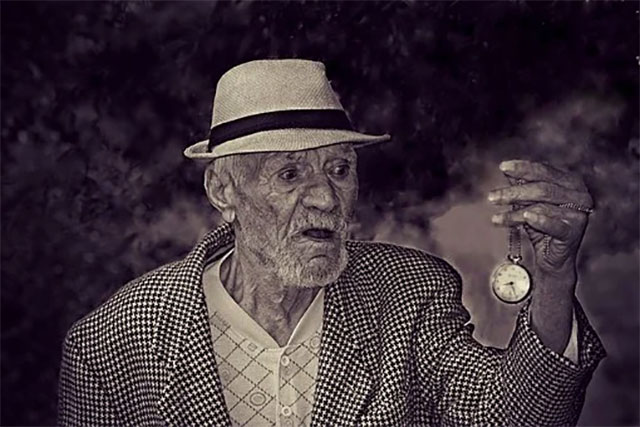
In truth, there’s only about 3 years between the end of Genesis 23 and the beginning of Genesis 24. Abraham has reached the age of about 140, and he will yet live to 175, so he has many years of the journey with God before him. But things have changed for Abraham. Sarah, his dear wife, died almost 3 years before and Abraham is feeling the loneliness which comes with widowerhood. Oh he has wealth and lots of herdsmen carrying for thousands of animals scattered out in the fields, and his son Isaac is a great joy to him, but Isaac is often away, working in the fields, for long periods of time. Abraham spends long hours reflecting now, and he realizes it’s time for Isaac to start his family. In those days, as in some places today, marriages were arranged by parents for their children, even if those children were 40 years old! But Abraham faced a problem.
While Abraham was confident he was living in the place God had led him to live, he was surrounded by idol worshiping peoples who did not know God and therefore in God’s view NONE of the women who lived around them could be wife candidates for Isaac. In Abraham’s heart, this selection of a wife for Isaac was vital if the Covenant promises of God were to be sustained in the next generation. Oh my, that calls us to look at our families and ask some important questions doesn’t it my friends? What are the criteria for marriage in your extended family? Where will your grandchildren find suitable spouses who can build God honoring marriages which will last a lifetime and produce the next generation of God honoring young people? Who has best modeled for them HOW do build such families?
The record of Genesis 24 is that Abraham, too old to travel long distances now, sends his trusted chief servant to go and find a suitable wife for his son Isaac. Now put yourself in that situation. What instructions would you give someone if you sent them off to find a spouse for your child? If you have married children, how do you feel about their spouse selection? How healthy are their marriages and families? For Abraham there was one clear criteria he gave to his servant: “Swear by the God of heaven and earth that you will not get a wife for my son from the daughters of the Canaanites, among whom I am living, but will go to my country and my own relatives and get a wife for my son Isaac.” (Gen. 24:3,4) You may recall Abraham, Sarah and Lot had moved to Canaan when Abraham was 75 years old and they’d come from the town of Haran where they’d lived for several years while Abraham cared for his ageing father Terah. (Gen. 11:31,32) Evidently others of Abraham’s extended family had settled in that region also, so it was to that town, nearly 400 miles to the north, in modern day Turkey, that this servant went looking for a suitable wife for Isaac.
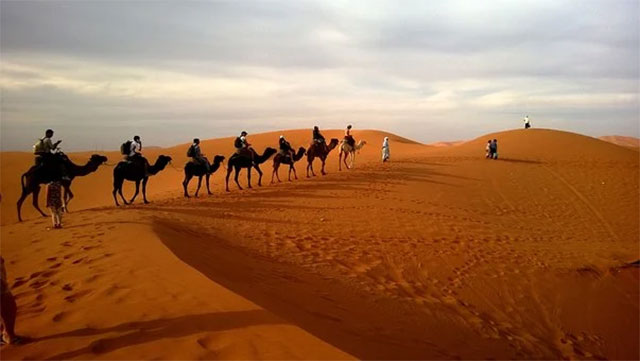
Abraham’s servant is unnamed, but I suspect he might be Eliezer of Damascus, whom Abraham had identified in Genesis 15 as the man who would inherit his estate if God did not keep His promise and give Abraham a son. They’d been together for many years. Eliezer knew his master Abraham well, and Abraham evidently trusted Eliezer to make the wife selection he himself would make if he was the one selecting Isaac’s wife. Eliezer did not travel alone. The record says “He took ten of his master’s camels loaded with all kinds of good things from his master and set out for the town of Nahor.” Of course Eliezer would have taken several other men with him to guide the camels and protect the goods they carried from thieves and bandits. Abraham promised Eliezer he would have one more important person traveling with him. Abraham had said “The LORD, the God of heaven, who brought me here… will send His angel before you so that you can get a wife for my son from there. If the woman you find is unwilling to come back here with you, then you will be released from this oath. Only do not take my son back there.” (Gen. 24:7,8)
My friends, let’s pause right here for a moment and reflect on our life journey’s. Consider your family heritage from the vantage point of ethnicity, family values, geographical roots, family priorities and especially your family spiritual heritage. How do you see God involved in your family story, from as far back as you know in your family tree, to the present day?
Now look forward, from today, down the corridors of time. What do you anticipate for yourself as you grow old, and for your children and grandchildren? Based on what you see in the character, moral values, priorities, spirituality and integrity of your family, what will be your family story 20 years or 50 years from now? Abraham knew the Covenant promises of God and how important descendants and land and relationship with God were. Isaac must remain in that God given land and he must continue the family legacy with God provided, miracle children. This wife selection was critical, vital to the continuation of God’s covenant promises. There was no room for error in this selection of the woman God had prepared to be Isaac’s wife.

It appears Abraham’s servant had learned much by watching Abraham’s growing relationship with God over the years. As he approached the town of Abraham’s relatives, even though as far as we know he’d never been there before and he did not know any of them, the record says: “He had the camels kneel down near the well outside the town; it was toward evening, the time the women go out to draw water. Then he prayed, ‘O LORD, God of my master Abraham, give me success today and show kindness to my master Abraham. See, I am standing beside this spring, and the daughters of the townspeople are coming out to draw water. May it be that when I say to a girl, ‘Please let down your jar that I may have a drink’, and she says, ‘Drink and I’ll water your camels also’, let her be the one YOU have chosen for Your servant Isaac.” (Gen. 24:11-14) What do you see in this approach to finding a wife my friends? It is very clear… Abraham’s servant has one and only one priority criteria: the woman he selects must be GOD’s selected woman for Isaac! Beauty, physical strength, wealth, education, personality…are all insignificant as compared to the assurance that GOD had chosen this wife for Isaac. May I ask, if you have children and grandchildren, what are your criteria for their spouses?
Listen carefully to what the record says next: “Before he had finished praying, Rebekah came out with her jar on her shoulder.” The servant had no idea who she was, nor anything about her family, but something stirred in him to ask her for water. I think that was the Holy Spirit of God guiding the servant to ask that one woman among all those who were at the well that day. “The servant hurried to meet her and said ‘Please give me a little water from your jar’. ‘Drink my lord’, she said and quickly lowered the jar to her hands and gave him a drink. After she’d given him a drink, she said, ‘I’ll draw water for your camels too, until they have finished drinking.” (Gen. 24:17) Now my friends, 10 camels who had walked 400 miles are thirsty animals and likely drank many gallons of water each! This was no small project she’d just taken on to help a man she’d never seen before, and had no idea what his mission was. It would have required her many times of lowering the bucket into the well, raising it up again, filling her jar, emptying it into the trough for the camels and lowering the bucket again. The record says “Without saying a word, the servant watched the young woman closely to learn whether or not the LORD had made his journey successful.”
When the camels had finished drinking the servant gave the girl several gold gifts and asked a vital question: “Whose daughter are you? Please tell me, is there room in your father’s house for us to spend the night?” History, destiny hung in the balance as the servant awaited her answer. “I am the daughter of Bethuel, the son that Milcah bore to Nahor. We have plenty of straw and fodder and room for you to spend the night!” Oh I doubt any of us can imagine the excitement Abraham’s servant must have felt in that moment. Nahor was Abraham’s only other living brother (Gen. 11:29). He had remained back in Ur when Abraham had moved with their father Terah. Evidently at some point some of Nahor’s family had also left Ur and moved 700 miles to this town! Amazingly God had led Abraham’s servant to make contact with Abraham’s relatives! There was only one appropriate response in this moment: “The servant bowed down and worshiped the LORD, saying, ‘Praise be to the LORD, the God of my master Abraham, who has not abandoned His kindness and faithfulness to my master. For the LORD has led me on this journey to the house of my master’s relatives.” (Gen. 24:26,27)
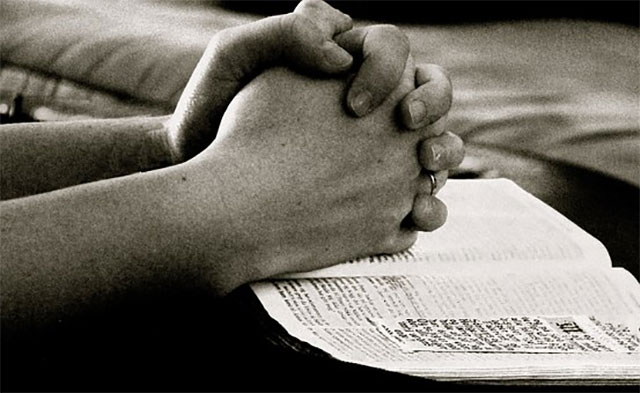
Let’s pause right here for today and sit at this well as we continue watching this remarkable scene. What have we just witnessed? What can we learn from the deep faith of this servant who was sent on such a vital mission with no room for error? What do we learn about how God leads and guides those who desperately long to live their lives in full alignment with God… in every decision? What does this teach us about God’s desire for direct involvement in spouse selection and the uniting of a man and woman in marriage, and the development of God honoring family heritage? I wonder what you want to speak with God about right now, my friends?
Bible images provided with attribution to www.LumoProject.com.
Have a comment or question about today’s chapter? I’m ready to hear from you, contact me here.

Pastor Doug Anderson 262.441.8785
“Let us run with perseverance the race marked out for us, with our eyes fixed on Jesus…” (Heb. 12:1,2)
Archived back issues of “Walking with Jesus” and other resources are available by clicking here to open our ‘home page’ (or go to HOME at upper right of this page).
Share with friends. Subscribe below for daily “Walking with Jesus”.
Facebook
Twitter
LinkedIn
Pinterest
Email
WhatsApp


